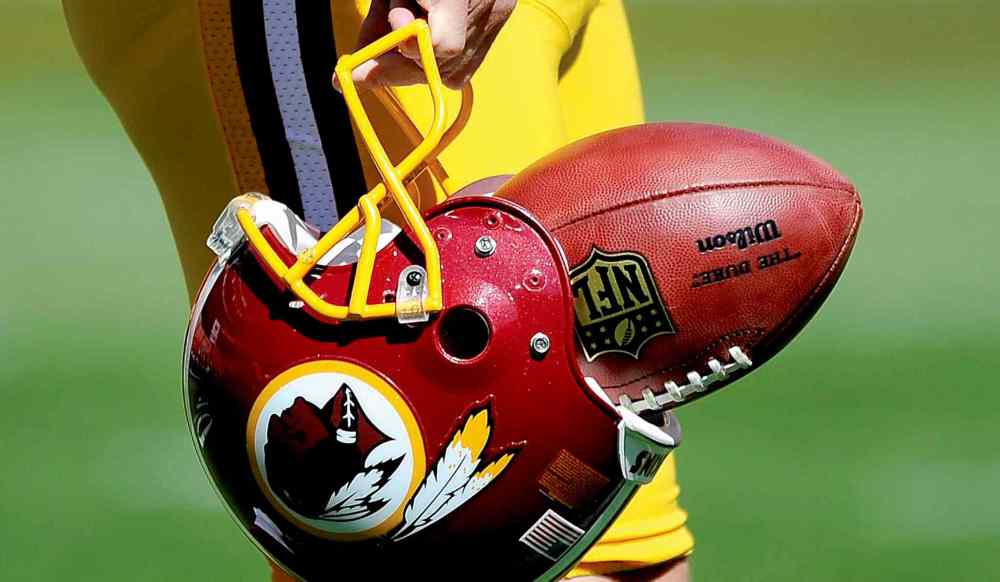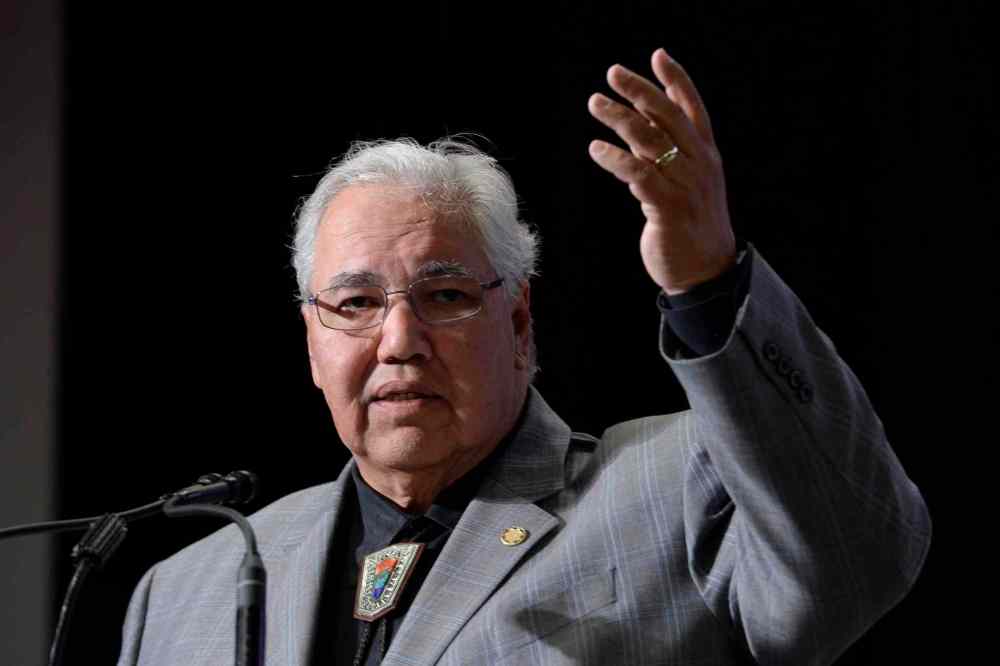Time to get rid of offensive indigenous mascots in sports: TRC commissioner
Advertisement
Read this article for free:
or
Already have an account? Log in here »
To continue reading, please subscribe:
Monthly Digital Subscription
$0 for the first 4 weeks*
- Enjoy unlimited reading on winnipegfreepress.com
- Read the E-Edition, our digital replica newspaper
- Access News Break, our award-winning app
- Play interactive puzzles
*No charge for 4 weeks then price increases to the regular rate of $19.00 plus GST every four weeks. Offer available to new and qualified returning subscribers only. Cancel any time.
Monthly Digital Subscription
$4.75/week*
- Enjoy unlimited reading on winnipegfreepress.com
- Read the E-Edition, our digital replica newspaper
- Access News Break, our award-winning app
- Play interactive puzzles
*Billed as $19 plus GST every four weeks. Cancel any time.
To continue reading, please subscribe:
Add Free Press access to your Brandon Sun subscription for only an additional
$1 for the first 4 weeks*
*Your next subscription payment will increase by $1.00 and you will be charged $16.99 plus GST for four weeks. After four weeks, your payment will increase to $23.99 plus GST every four weeks.
Read unlimited articles for free today:
or
Already have an account? Log in here »
Hey there, time traveller!
This article was published 15/11/2015 (3681 days ago), so information in it may no longer be current.
WINNIPEG – The head of Canada’s Truth and Reconciliation Commission says it’s time to get rid of offensive indigenous mascots which would never be tolerated if they targeted any other cultural group.
Justice Murray Sinclair, who spearheaded an examination of Canada’s residential schools, says sports teams with offensive names such as Redskins and cartoonish aboriginal-looking mascots have no place in a country trying to come to grips with racism in its past.
“It’s only indigenous peoples’ symbols that are being utilized by sports teams. I don’t think there is any cultural group that is subject to that anymore,” Sinclair said in an interview. “People need to re-examine their behaviour — all aspects of their behaviour — the way they are doing business.”

Some Canadian high school teams are taking steps to phase out their mascots while others say there is no need.
A Morden, Man., hockey team named the Redskins was criticized recently by a local city councillor, who wanted city council to call for a name change.
Morden Mayor Ken Wiebe, one of two who voted in favour of the motion, said he couldn’t talk about it because council ultimately decided not to get involved.
“This is not a sword I’m going to fall on,” he said.
The team’s general manager, Brent Meleck, who is aboriginal, said the name has “been around for a long time. We’re not doing anything wrong.”
Sinclair said a name like that has a profound impact on young indigenous people.
“I can’t imagine how comfortable they would feel knowing the major team in their town is called that,” said Sinclair, who pointed to the Washington National Football League team with the same name. “They’ve been told by a number of legal entities to stop doing it, but they’re still fighting for it.”
The Washington blowup initially raised some questions about whether the Canadian Football League Edmonton Eskimos should change their name, but a team spokesman quickly squelched the idea.
“We have no backlash from our fans or politicians or any other sort,” team spokesman Allan Watt said in June 2014.
An Inuk lawyer who played with the team briefly in the 1950s backed Watt up.
“I don’t know what the problem is with having us called the Edmonton Eskimos,” said Kiviaq, formerly known as David Ward. “It wasn’t meant to be derogatory at all. We … should be proud of it.”
However, several Canadian junior and high school teams did opt to change their names last year following public concern.

The Nepean Redskins youth football team in Ottawa changed its name to the Nepean Eagles after a human rights complaint.
The Western Canada High School in Calgary dropped its Redmen name and logo after consulting with school board elders. It cost the board $200,000 to repaint the gym and order new uniforms.
Two Saskatchewan school teams also called Redmen changed their names as well. Regina’s Balfour Collegiate team is now called the Bears and Bedford Road Collegiate in Saskatoon switched to Redhawks.
In the United States, Adidas has announced it will help high schools who want to change their mascot by offering free design resources and financial support. It’s estimated there are about 2,000 schools in the States with outdated indigenous mascots or symbols.
The move was praised by Oneida group Change The Mascot, which has led the protest against the Washington Redskins. Ending “the use of the R-word is not going away, but is instead gaining momentum as people understand the damaging impacts of this racial slur,” the group said in a statement.
A spokesperson for Adidas Canada said the company can’t comment on plans to extend the program north of the border.
The initiative would take away any financial argument for those resisting a name change, Sinclair said.
“It boils it back down to the real issue — (whether) they want to cling to that more pejorative expression or not.”
History
Updated on Sunday, November 15, 2015 9:47 AM CST: Adds images.


